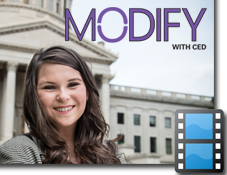My Free Taxes Tax Preparations
Credit Cards
My Free Taxes Tax Preparation Information
Download a PDF of the Tax Preparation Information
Facts about myfreetaxes.com
- To sign up for Free Tax Preparation or learn more, google “my free taxes”.
- MyFreeTaxes.com is a free resource operated by H&R Block and the United Way.
- Using the site will help you file your taxes and learn about credits and deductions you may qualify for.
- If you have worked and had taxes taken out, it is in your best interest to file a tax return. https://www.irs.gov/help/ita/do-i-need-to-file-a-tax-return
- Taxes are due each year around on or around April 15.
Credit Cards
Download a PDF of Credit Cards Information
What is the difference between a credit and debit card?
A credit card allows you to buy and pay over time and includes finance charges. A debit card allows real time spending of money in your checking or savings account and may include a finance charge depending on banking institution.
What is an “APR?”
An annual percentage rate (APR) is the cost of the credit expressed in an annual interest rate. The higher the interest rate, the more the credit is going to cost you if you do not pay off the balance every month.
What is a grace period?
A grace period is the number of days you have to pay the bill in full for new purchases without incurring a finance charge.
What is an annual fee?
Annual fees are sometimes charged by credit card issuers for the privilege of having the card. Try to look for cards with no annual fees.
What are transaction fees?
Fees charged for cash advances, balance transfers and late payment fees.
What are some mistakes to avoid when using credit cards?
- Getting too many credit cards - the more cards you have the bigger the temptation is to go deeper in debt
- Misunderstanding introductory rates - a 0percent introductory rate is great but be sure you pay it off before it expires or you will pay retroactive interest charges, usually at a high rate
- Not reading the fine print - Read the fine print of the credit card offer to see what the APR, grace period, annual fee and transaction fees are. Try to avoid variable rate APRs as these cause interest rates to sometimes go way up based on the economy.
- Choosing a card for the wrong reasons - If you get a card because it has rebates or travel points when you are already deep in debt, it is not worth it.
- Not rate shopping - look for the best APR
- Making minimum payments - Making only the minimum payment can cost you thousands in interest and take years to pay off
- Paying your bill late - incurs a late fee and hurts your credit score
- Ignoring your monthly statement - not paying attention to what is being charged and the due date for the bill can lead to issues
- Exceeding your credit limit - racks up over the limit fees
- Buying things you do not need - review your statement each month and make sure you are not making impulse buys
Tip - Keep a separate record of card numbers and customer service lines in case your cards are ever lost or stolen.
For more information about credit cards and all things credit related, visit the Federal Trade Commission website www.consumer.ftc.gov


